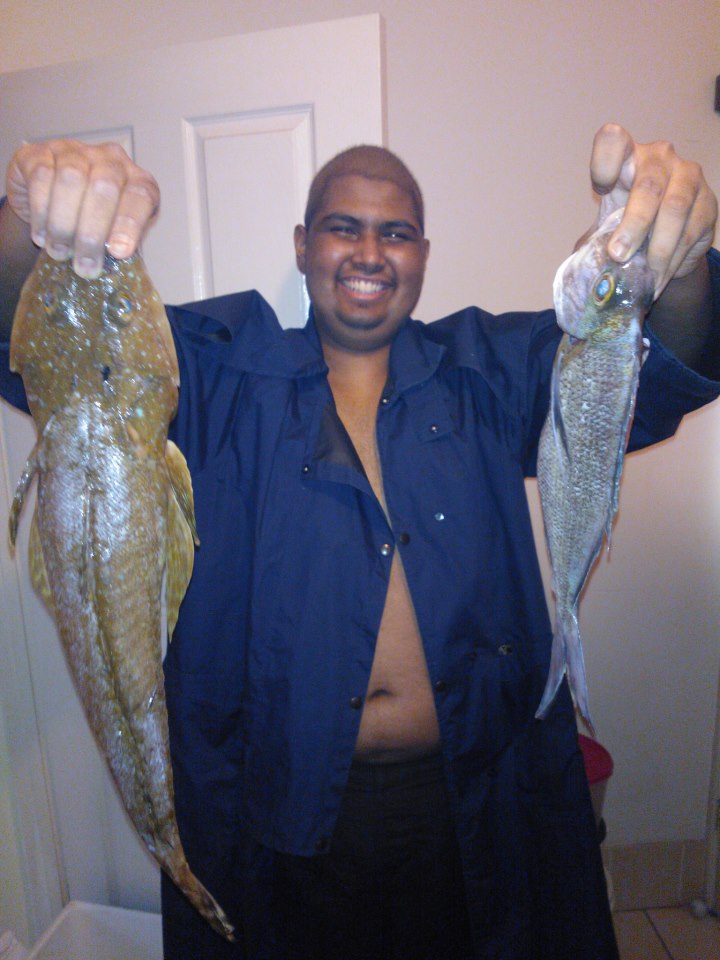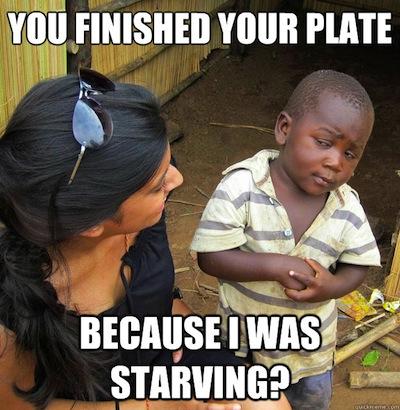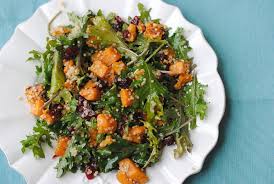Heaps of people around me have been saying how much thinner and healthier I’ve started looking, and almost all of them have been asking me how or what I was eating or doing to get there… a few even asked if everything was okay… healthwise.
Well, no, I’m totally fine, and I did mean to lose this weight.
To be honest though… it wasn’t really that hard at all.
Everyone talks about how they can’t stay on a diet and how they can’t find the time to do exercise… They talk about how hard it is to make changes in their life and how they just don’t have the willpower or ability to be healthier people.
But even while on 50mg of prednisone, a corticosteroid (which increases your appetite, screw around with your hormones and energy metabolism, and eat away at muscles) and even while I was still getting some chemotherapy which makes me anaemic for a one or two weeks every month, I didn’t find it hard at all.
You wanna know why?
Because all I did to become a healthier person was change my MINDSET.
It didn’t require “willpower”, “bravery”, or even long bursts of commitment. By hacking my mentality, I made healthy habits just that – a habit. And in truth – it was EASY.
Doctors all tell us that weight loss requires a lifestyle change, rather than drastic, quick-fix 12-day-detox/Biggest Loser boot camp solutions. And they’re right. You should look to lose weight AND keep it off. It’ll help you with heart problems, lower your chances of diabetes, reduces your risk of cancer and also – a healthy diet can make you feel better, more energetic than ever before.
But the words “lifestyle change” imply that it’s hard, that it requires constant effort and struggle to do, and that’s a big reason why people aren’t willing to make that change.
Eating the right foods, and getting some exercise on a continuous basis IS vital to weight loss. But what’s even more important is if you can maintain that way of living.
I’m not trying to sell you shit.
A few months ago, I was sitting at around 106-107kg. I was trying everything to get fit and lose weight. I started juicing, cutting carbs out of my diet and went out, trying to run, get back into my old sprint training and back into the weights. And that was working – as it would for anyone – for a few weeks at a time.

Before: 107kg
But with my low immunity putting me into hospital with infections every few months, with my treatments lowering my bloodcounts, I kept getting sent back to where I began from over and over again… and it was frustrating as hell.
I yoyo dieted. Like crazy. I calorie counted. Stopped carbs. Intermittent fasted. Got into calorie deficits.
But dieting is hard. Forcing yourself to not eat is unnatural and really hard to do consistently.
I wanted to lose weight and become as fit as I was before cancer… I wanted to see results… but they just weren’t coming.
But after a while of this, I took a step back and saw that I was going through a cycle over and over again. It’s the same cycle a lot of yoyo/fad dieters go through.
I wanted results and I wanted them NOW. But they weren’t coming.
You don’t need huge “willpower” to do it. All it takes are a few small changes in how you view things.

But I’d lost nearly 20kg. It looks like a lot, but really, it was 1kg/week.
I ate KFC, pizzas, tacos and junk food the entire way. As much as I wanted.
The only time I gained weight again after this was 2 years after this, when I got a third cancer in my ribs, was in hospital, and when I thought I’d need chemo again.
The amount of calories I’ve counted? Zero.
The amount of willpower I’ve exerted?
I maybe stopped myself from eating 3 or 4 times in that first week?
So what did I do?
1) I told myself it would take time.
2) I let myself be human, and cheat or fail every now n then.
3) I took a step back and changed how I looked at food.
4) I challenged the thought processes that made me keep wanting to eat while I was eating.
5) I SLOWLY – we’re talking 1 pizza slice less per month – reduced my portion sizes.
6) I ATE WHATEVER THE DUCK I WANTED – and let myself be human, knowing, that by reducing my portion sizes slowly over time, my stomach would get smaller and my brain would form neural pathways would make NEW thought processes that would become my habit.
7) I didn’t have to do anything else. I don’t have to do anything else. Ever. Neuoroplasticity has ensured that I never
have to try to diet again.
In more detail and for the science, keep reading. If you’d like to read the whole science kinda thing, and check out the papers behind this – check out my like 30 page book which summarises all of this (all free, lol, I should monetize this to grow it, but I’ve got no time).
But yeah. I hope this helps. Email me if it does or if you wanna talk anytime.
# 1 – I Told Myself that it Would Take Time
–> This is one of the most important realisations you’ve gotta make. No matter how much we want it to, results don’t come in a few days. But they do come.
The trick is to not only remind yourself of this – but to keep looking at the big picture, on your entire journey – as this will make maintaining changes easier to accomplish. Instead of falling down in a heap if you can’t resist that desert at a party, you’ll remind yourself that the amount of times you had been good, and that in the long run, you were on the right path.
The science only helped me further believe, hell, it made me KNOW I could do it. But I mean it only made sense… I was only beginning my journey to get healthy – I was starting from scratch. It would take time to get to where I wanted to go. It wouldn’t happen overnight.
But that wasn’t a bad thing. I mean, it’s simple statistics. If I did things generally right, over a long period of time, I’d get to where I wanted to be. And by looking at it this way, I wasn’t forcing myself into doing something I didn’t want to – I was ALLOWING MYSELF TO BE HUMAN. knew I wouldn’t give up, or worry, or hate myself if I had a few slip-ups on the way either.
That’s exactly how you should look at weight loss, or any goal for that matter. It’ll give you the best chance of getting there (and of staying happy on the way too).
#2 – I Took A Step Back, and Made SMALL Changes To How I LOOKED At Food
–> Instead of making huge, drastic changes to my diet, or instead of starving myself, I
- Took a step back, and
- Questioned my current habits, until I saw
- An alternative perspective, or way of looking at things, that would leave me healthiest
The simple act of self distancing is shown to reduce blood flow to emotional centres, and regions of your brain that reference yourself, allowing you to be objective. This is shown to improve decision making. But from this step back, you also are able to see all your options more clearly. From here – choosing to start looking at the path that leaves you happiest and healthiest not only just makes sense, it also comes FROM YOU. Don’t just read how I did it – examine yourself from this perspective yourself – and you’ll get the person most likely to motivate you on your side – YOU. Motivation works best when it’ comes FROM YOU.
I’m writing about how I used this mentality to get me through cancer, get into med school, start up a pattern changing health tech startup, and learn to ignore chronic pain – amongst other things – and it’s out NOW (lol just updated this – it is out)! Join my email list and it’ll come in your email for free. Hope it helps!
3) Hacking your Stomach, and Hacking your Brain
Reduce your Portion sizes. SLOWLY:
When trying to reduce how much I ate – I realised that, especially with foods I liked, I was just gulping down food down by the spoonful. But in truth… I wasn’t really taking the time to savour them. The first 5, 10, maybe 15 spoonfuls or bites were most enjoyable. The last few… even with my favourite foods, well, to be honest, I was really only trying to finish off what was left.
To change that I made small gradual reductions to my portion sizes. I started savouring my meals and once I realised I was full, I’d just leave it, put it in the fridge or throw it out, and next time take out less.
Over time… the portions got smaller and smaller. When going out… if I didn’t really feel like finishing off my plate, I’d just leave it and ask if anyone else wanted a few bites. I was brought up on the whole “Finish your plate, there are children in Africa who’d KILL to have what you’ve gotten!” sort of mentality… and it’s true. We waste tremendous amounts of food, and do need to respect it more.
But why was I destroying my veins, my health, my vitality to assuage this preconception, when I could instead just take out a few less spoons, order a medium (and in time, a small) meal instead of a large one, and pack away good meals for breakfast or lunch the next day, and feel better for it?

Your stomach usually has a capacity of 200mL, but can stretch to hold up to 1L in most humans, by relaxing smooth muscle cells which comprise most of its wall. Over time, however, if not stretched to larger limits, the stomach loses the number of smooth muscle cells, and pacemaker cells (those which cause coordinated digestive contractions), leading to lowered capacity to relax. Furthermore, levels of neurons which release nitrous oxide, which promotes relaxation of smooth muscles, also reduces in patients who have lost weight recently.
So over a period of a few weeks, slow, sustainable reduction in meal sizes will cause you to lose the ability to eat larger meals over time!
It’s interesting to note that even after a while of this kind of fasting, even after overconsuming, average stomach stretchability did not return back to normal levels, meaning you’ll have the ability to have the occasional splurge without starting back at square 1 again.
But key to all of this working is the neuroplasticity of your mind. It’s widely conceived that you need huge willpower to resist the temptation to continue eating. But the simple changes in the way you think about food described above is what ensures you’ll get to that stage where your stomach adapts.
Neuroplasticity is the brain’s ability to form new cortical maps – linkages between series of neurons – in response to various scenarios. ‘Neurons that fire together, wire together,” is the basic principle on which this idea is built – so reminding yourself that
- You like food, but hate that fatty, full feeling afterwards
- You like food, but often shovel in the last few bites just for the sake of it. And that
- You enjoy meals even more when you really take your time to savour the meal
for just a few days in a row, will start forming these cortical maps. In weeks, these cortical maps become so solidified and prolific – they become your automatic response. You won’t have to think these things anymore, you’ll already, subconsciously believe them. And though weeks of resisting temptation seems hard to do, because it
- Is coming from YOU telling yourself these things;
- Because your cortical maps are forming and becoming more and more solid over time, and
- Because you’ve got a long term goal, which causes more dopamine to be released each step you take towards it –
it’s actually quite easy to do. They’re subtle, small changes to how you view food, but combined, they make a HUGE difference. It’s the difference between going into a diet, hating life and having to force exert significant willpower to control yourself, and eating what you want, but slowly, and surely, changing your mindset, and letting your brain lose the weight for you.
Remember, thinking is HARD. We’re lazy, and we don’t wanna work, because your brain consumes oxygen. But if you understand HOW the brain works and learns (pretty much everything we do and get better at relies on this neuroplasticity), and you make changes that make your NORMAL thought process a HEALTHY one that DOESN’T REQUIRE willpower to do… Well being healthy BECOMES the lazy, easy thing to do.
And you know what? It worked. In January this year, I could eat a whole pizza, and I’d go up for second servings when lamb curry was made at home. Now… I can still do a half pizza… maybe more, but only when I feel like it. And I barely finish 3/4 of a plateful of rice and curry (I used to eat 1 – 1.5 lol). That small change in mindset resulted in a huge reduction in my calorie intake per day. And it’s the main reason why I’ve lost so much weight AND KEPT IT OFF without trying.
Making Healthier Choices:
Me – I’m a foodie. I like trying different things, new cuisines. And I like variety in my day to day life. I also like my meat, hate salads on their own (chemo’s changed my taste a lot – I used to love the taste of lettuce… now it tastes like dirt at times) and I like eating carbs like bread or rice with meals. Who doesn’t really?
With these simple changes, I was able to eat all these things and still lose weight.
But I knew I could stand to benefit from eating generally healthy foods… so again, I took a step back, questioned my current habits, and made small changes to my mindset on food, which helped me eat more healthily too, without depriving myself of the pleasures of life.
Carbs… I did like them, but what I liked more was what I was eating with them.
So I changed the portions around, added more fillings or curries, whatever I was eating at the time and reduced the proportion of that to however many slices of bread or spoonfuls of rice I’d eat with them. Again, this happened over weeks, not instantly.
With salads, whose taste I couldn’t stand post chemo, I started drizzling, sometimes dumping tasty dressings based in oils (luckily regular olive oil is good for you), and added things like cottage cheese or olives to make them tastier.
Juicing, though it gets good vitamins and veggies/fruits into you, was too much of a hassle to do regularly, especially cleaning the damn things. So I started looking around for good fruit/vegetable juice mixes with no added sugar or preservatives and came across this brand, which uses pressure instead of preservatives, and doesn’t add sugar to the mix and saves me time too. There’s bound to be something similar in your location!
I liked variety in my diet, and that was good. So I picked cuisines to eat regularly that were easy to prepare, and tasted good and were still healthy for me – things like tacos or stir fries (which have good amounts of veggies, are easy to cook, low in carbs and have good, but not excessive amounts of meat) and I mastered them. They’re like a staple to me now. And I don’t hate eating unlike most people who diet – so I maintain this healthy lifestyle still, to this day.

I couldn’t believe this came from CostCo either when I first tried it. But I highly recommend it – their Kale/Sweet Potato/Quinoa cous cous salad.
Taking out the Junk Food
To be honest, I haven’t taken out all junk food. I probably eat junkfood once a week now, still. But I lost all that weight while eating junkfood every few days.
Still. Junk food is junk… food. How did I reduce the amount of crap I ate?
Well I mean I looked at them, from that step back, and asked why I used to have that crap so often… I mean they do taste good, and they are cheap and easy to prepare… But I hated that “fat”, “oily” feeling I had after eating a packet of chips, some chocolate or a burger or box of chicken from KFC.
I didn’t cut them out entirely, which many people do, instead I only got a few small bits and pieces from fast food places or fish n chip shops, every now and then, and had them alongside other, healthier stuff. KFC – I made sure I had that with these pre-made salads I found in CostCo which complimented it perfectly. With the chocolates, and chips, instead of gulping down a handful or packs of tim-tams at a time and then feeling bad afterwards, I shared them around with other people, or scabbed a few chips or bites from friends instead of buying a full pack and feeling like I had to devour it. Those small changes made me eat healthier (and also saved me money too – sorry guys). I still got to enjoy the taste. But I sidestepped feeling crap!
They are easier to cook, I guess, and many people just don’t have enough time to cook – but those meal suggestions I made above really help with that. Another thing that makes cooking easier for me is marinating meats and eating them with salad or veggies or a good slice of cheese (which acts as a side dish for me – I love block cheese and it’s high in proteins too so it makes you fuller quicker). I marinate a huge amount of meat in tandoori paste, or honey soy dressing – whatever I feel like – leave it over a few days (the longer it marinates, the better it tastes) and cook it in meals with this simple frier/grill which only requires me to flip once and makes meat really tender too and it’s done quickly. It’s quicker than a drive out to the closest McDonalds, and takes only a few flips in total to make it.
These small changes to how I viewed eating, small changes to my mentality, was all it took to improve my diet drastically. I haven’t cut anything out, I’m not hating myself and making myself less likely to succeed by following strict diets and better meals is a MAJOR reason why I’ve lost so much weight and why I’m so healthy right now too!
Improving My Fitness/Exercise Habits:
When I started trying to get fit after my second transplant, a year ago, I told myself I was going to take it slow and build up from there. After my first transplant, I pushed straight into weights and basketball, I didn’t even focus on getting any endurance back before doing so and in the end, it didn’t help me get healthier… It just made me frustrated (because I wasn’t improving much) and probably made me sicker overall too.
This time around though, I didn’t have a relapse, and lower blood counts stopping me from improving. What I did have was excuses and laziness and self-consciousness about my abysmal fitness, which made me not train consistently, which made me frustrated that I wasn’t getting fitter, which made me lose the will to get fit – initiating a huge cycle where I’d get motivated and exercise for a week or two and then stop, only to repeat it, again and again.
Taking that First Step.
Well, changing how I looked at things helped me get more consistent in my training. Motivating yourself to get off your bum and start is the hardest thing to do when exercising. But by changing your perspective on exercise, from a thing that is painful and excruciating to do, to something that you can build up on – something that gives you more energy throughout the day – gets you over that initial burden of getting up and doing that first set. Looking at your long term goals becomes really important here. Remembering to focus on the fact that you will get there – in time – as long as you’re doing the right things OVERALL, as opposed to expecting to beat your PB every session, ensures you won’t give up when you face failure – instead, as you’re prepared for these, you’ll be picking yourself up.
It’s when you have a bad, or disappointing workout that this patient thinking really helps. Instead of getting down and sad about it – you’ll be ready to go the next day, because you’ll know for that 1 bad workout, you’ll have 5 other good ones, and you’re still be heading in the right direction.

Another great tip – do something FUN! You’re much more likely to commit, and form good habits, if you make yourself accountable. So get a gym buddy, or join a team! 3/4 adults played sport growing up, but only 1/5 play as adults. Why is that?
Start Easy and Build Up From There
When building up from scratch, which I’ve had to do plenty of times, looking in the long term REALLY helps.
In my case, and that of many other patients who read my blogs, treatments and concurrent infections would bring me back to starting position, walking and body weight exercises were excellent in building me up. I started with push-ups, squats and sit-ups in front of the TV. Those things gave a good burn and made me feel like I did something and gave good, constant improvements when I did them consistently too. I didn’t just like walking for no reason, so I used my mind and my interests to my advantage and started walking down to the river with a rod in hand, looking at the tides, watching the small fish and how they moved, and getting good ideas and experience to improve my fishing. Basketball – my favourite sport – always keeps me motivated, and watching a good basketball video or movie would always get me up and ready to have a shoot around. You can use whatever passions you like. Cycling, rock climbing, diving, whatever you want to motivate you to keep you in the gym or in the pool or on the track.
Make exercise time valuable. I know many students find it hard to sit down and study – so download your lectures and put them onto your music player and go for a walk or run. Same thing goes for podcasts of your favourite radio shows, or just blasting your own music. Makes it easier and even fun to train – in fact, Jana Pittman, a classmate of mine does this to keep up with medicine and still train at an Olympic level.

The power of incidental exercise doesn’t just stop at boosting the calories you burn a day, but also extends to formulating strong, neuroplasticity-moulded, attitudes towards exercise. Each time you pick the stairs – you make yourself more likely to pick them next time!
Don’t Be Shy, Or Worry About What Others Think of You
Taking that first step was hard for me. After chemotherapies, where I’d have to start from scratch, I’d always feel embarrassed and self-conscious at how little I could do, and also about how weird I’d look. You may feel the same way when someone racks up more weight than you can squat on the bench press, or when someone laps you in the pool or when someone blocks you on the basketball or volleyball court. Whenever I wanted to work out, I would always feel the stares of others on me and that stopped me from wanting to go out and get healthy in the first place. When you take a step back and see it in another way though, you’ll see that you’re stopping yourself from being the healthiest and happiest version of yourself because of what other people may be THINKING about you. Read more about how I managed to get past my self consciousness and become the most confident, happiest version of myself here.
Overall – losing weight and getting fit and healthy is NOT something hard. The only thing standing in the way of you getting there is YOU and your mindset. Get your mind on your side and the rest will become easy.
Those fad diets and boot camps can help lose weight and they do work. But they’re not easy to maintain – they’re not for everyone. Using your mind to your advantage is the best thing you can do to help you get healthy.
Myself – I’ve gone down from 97kg in November last year to about 80kg now. And I’m in that luxurious position of needing to gain weight (to keep a good amount of fat, which makes the injections I get in my belly easier to handle, and lowers the chance of bruising there too).
I talked about this on radio actually – have a listen to it here:
Feel free to leave any tips of your own down here. To help me and others along on their journey to get fit and healthy.
